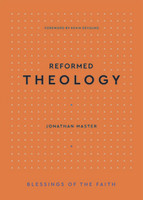The Confessions in the 21st Century
What is the path to a renewed orthodoxy in Reformed churches? Does this path run through the classic Reformed confessions of faith? Can they still serve as pillars of stability for the church?
In Recovering the Reformed Confession, R. Scott Clark lays out a compelling argument for the continued relevance of confessional Christianity. He gives a robust recounting of the ‘golden age’ of confession writing after the Protestant Reformation. He helpfully places the various productions of Reformed and Lutheran confessions in a rich historical context in order to explain their variety and their emphases. He also highlights the causes of the decline in confessional solidarity among Reformed churches. Finally, he presents several ‘test cases’ as examples of how the confessions can speak clearly into contemporary debates surrounding Sunday worship services, instruments in worship, and Psalm singing.
In the epilogue to Recovering, Clark writes, “I have little interest in preserving the status quo in the conservative Reformed churches, if only because we are often conserving the wrong things.” (343, emphasis mine). To understand Clark’s project – his effort to recover the Reformed confessions and establish them as the safeguard of doctrine and practice in the Reformed churches – it is essential to see that his purpose is not to retreat to a 16th or 17th century utopia but rather to reinforce the centrality of confessional fidelity in the church of the 21st century. For many in the contemporary church, such a move is either dismissed as archaic or as unnecessary. Yet, after reading Recovering, readers will certainly be challenged to reconsider their assumptions about the role of the confessions in the church.
Clark’s call to the churches is twofold: it is first a call to remain committed to the confessions of the Reformed churches because of the depth and clarity which they provide in contemporary discussions. It is second a call to take up the task of writing a confession for the 21st century that continues in the tradition of the great confessions of the church in previous centuries.
As a student preparing to enter into the ministry of Word and Sacrament, I have benefitted from the content and the cause which Clark has advocated in Recovering1. The content of this book has become a helpful reference on the validity of confession writing, subscription, and consistency in applying these confessions to life in the church. The cause of this book is an attractive one in the midst of a culture shift that is taking place among the twenty-somethings towards liturgical worship and polity. There is no need to be shy about embracing the creeds of the Reformed churches. In fact, it may be the very thing which is needed most in the midst of a sea of blurred lines and à la carte theologies.
I would recommend this book to anyone who is interested in the place of the historic confessions in the church of the 21st century.






